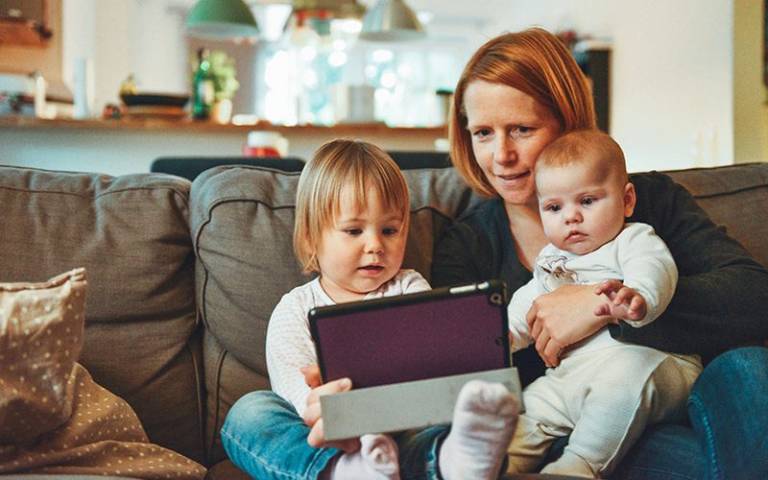IOE academic opens event celebrating 100 years of maternity protection
8 November 2019
UCL Institute of Education (IOE) academic Professor Margaret O’Brien has opened an international event celebrating the 100 year anniversary of the first global declaration of Maternity Protection labour standards.

The 1919 declaration recognised the right to paid leave in relation to childbirth with employment protection.
Professor O’Brien used her speech celebrate the gains of maternity leave labour standards and the rise in attention to gender equality. However, she also highlighted that among the employed population of Europe, 10% of women and 12% of men were ineligible for parental leave. This is often due to workers not being in their posts long enough before the leave is needed, job insecurity and self-employment.
Representing the International Network on Leave Policies and Research as well as the IOE, Professor O’Brien used her speech at the International Labour Organization (ILO) to explain the work that the Network conducts.
Professor O’Brien and fellow IOE academic Professor Peter Moss are co-organisers of the network which audits and tracks the yearly changes in maternity, paternity and parental leave policies across different countries. This includes the new designs that governments initiate, the increases or decreases in payment during leave, and the special arrangements made when a baby is born prematurely or when a mother dies.
Professor O’Brien said: “The International Network on Leave Policies and Research is honoured to be participating in the ILO’s 100 years anniversary celebration of the first global declaration of Maternity Protection labour standards.
“Leave policy has evolved since this first gender equality international labour standard in 1919. A primary focus of our analysis has been on which designs work best to encourage greater take-up of leave by fathers and partners beyond the initial maternity leave period. Why? Because a legal entitlement to take job protected paid parental leave offers time for a contribution to the care of the young child.
“Our evidence shows that well-paid leave and periods of ‘father/partner-only’ non-transferable leave work best to promote take-up by fathers and partners. Cultural practices in public life and the workplace and branding matter too and collaborations on marketing between governments, citizens, employer and employee bodies can lead the way [for further progress].”
The event also saw world-leading experts explore topics on women’s health, maternity discrimination, transformative leave policies and the future of maternal protection.
Links
- 100 Years of Maternity Protection: Transforming Leave and Care Policies for All
- View Professor Margaret O’Brien’s research profile
- Thomas Coram Research Unit
- Department of Social Science
- International Network on Leave Policies & Research
 Close
Close

